





The Colorado Criminal Justice System With A Colorado Criminal Lawyer – Part I – Pre-Trial
By Colorado Criminal Defense Lawyer – H. Michael Steinberg
Introduction – The Colorado Criminal Justice System is very confusing and frightening to most people who are charged with criminal acts. This web page is intended to help lessen those fears.
No Such Thing As Pressing Charges
In Colorado the decision to proceed with a criminal complaint does not depend on a victim “pressing charges” or “swearing out a complaint.”
Colorado Criminal Cases – How They Start
In criminal cases, the state prosecutes a person for violating a criminal law. The decision to initiate a criminal action and to accuse a person of a particular crime – the “charging decision” – is made by the district attorney of the county in which the crime was committed. (In a few types of cases, the attorney general may initiate the action.)
Crimes are generally divided between felonies and misdemeanors. A person convicted of a felony may be sentenced to prison. A misdemeanor conviction usually carries a jail sentence of no more than two years in the county jail.
Felony and misdemeanor crimes are further divided into different “classes” of crimes depending on the severity of the crime and the maximum possible punishment.
For offenses committed after 1995 there are six classes of felonies (1 through 6) and three classes of misdemeanors (1 through 3). ( Click Here )
What if the victim and the DA disagree about the charge?
In Colorado the decision to proceed with a criminal complaint does not depend on a victim “pressing charges” or “swearing out a complaint.” In certain kinds of cases, for example, domestic violence or intra-family sexual assault cases, it might appear that the victim may be afraid to or unwilling to cooperate with the prosecutor. Such a victim may “recant,” or deny, the allegations on which the charge is based. In some cases the recantation is the truth – in others the original statement to the police was the truth.
Such a turn of events does not require a prosecutor to dismiss the action, but it raises the question whether the prosecutor can prove the case without the victim’s cooperation. In some cases charges may still be proven successfully without a cooperative victim, based on the testimony of other eyewitnesses, or of statements of the victim made in the wake of the alleged crime (which may be used at trial under evidentiary rules known as the “excited utterance” and “present sense impression” exceptions to the hearsay rule).
Can the DA change or add to the charge?
Yes. The initial charging decision may change as the case progresses. Certain kinds of conduct might constitute more than one crime. For example, depending on the circumstances, a shooting might be charged many different ways.
As a case proceeds, and as more evidence comes to light, it may be necessary to change the charge (“amend the information” in the case of a felony or “amend the complaint” in the case of a misdemeanor). Further, negotiating strategy may influence the charging decision. Some
prosecutors routinely over charge a case or file the most serious offense they think they can prove, and may then be prepared to lower the charge if the defendant pleads guilty.
Other prosecutors routinely charge a less serious offense, but warn the defendant at the outset of the case that the information or complaint will be amended to charge a more serious charge if the case proceeds to trial.
Initial Appearance and Setting Bail In The Colorado Courts
Defendants must be brought before a judge in open court within a reasonable time. This
initial appearance is often the morning after an arrest, but it is seldom longer than 48 hours after an arrest.
At this first appearance, the district attorney usually gives the judge and the accused a copy of the criminal complaint. The complaint, a legal document charging the accused with a crime and sometimes the affidavit for arrest is attached providing some details of the alleged offense. This is a public record and may provide the first reliable description of the prosecutor’s view of the case. The complaint may summarize any statements made by the defendant to the police.
A judge or magistrate presides over this hearing and usually decides whether the accused should be held in jail or released pending further proceedings. The principal function of bail is to ensure that the defendant attends further proceedings in the case. In less serious cases, many defendants are released with only a signature bond or so called “PR Bond” and a promise to return to court without depositing any cash or property with the court. These “personal recognizance bonds” can be misleading because they state a monetary amount.
Bonding Out – Or “Posting Bail” In Colorado Criminal Cases
In more serious cases, a court will require the defendant to post cash or property to ensure his or her reappearance. Requiring the defendant to post bail cannot be used to punish the defendant. Nor may monetary bail be used to protect the community from the accused; however the court may use non monetary conditions of bail, such as ordering that the defendant not have any contact with certain places or people, not have weapons, not drive, remain sober, and so on.
Conditions of Bond – Bail
Sometimes defendants are required as a condition of bail to be monitored electronically, by telephone contact, or by in-person visits. In lieu of cash, judges may allow a defendant to provide property such as land or houses. The bail decision may not necessarily mean the release of the defendant; a defendant who is alleged to have committed a crime while on parole can be held without bail while the Department of Corrections decides whether to revoke his or her probation or parole.
The Preliminary Hearing and Arraignment Stages in Colorado
A defendant in custody and charged with a felony, and defendants who are charged with class 1,2 and 3 felonies are entitled to a preliminary hearing to determine whether there is probable cause to believe a felony was committed within the jurisdiction of the court.
The preliminary hearing sets a rather low hurdle for the State, to ensure only that unfounded criminal charges are nipped in the bud. The State need show only that it is more probable than not that the defendant committed a felony in order for the court to order the defendant to stand trial (or, in the parlance, to be “bound over for trial”).
The preliminary hearing is held fairly quickly after the initial appearance, unless the accused waives the “30 day rule” and agrees to a delay outside of 30 days. A judge conducts the preliminary hearing without a jury. The prosecution presents witnesses and evidence.
Prosecutors rarely put before the court all the evidence or witnesses they have. Defendants may cross-examine witnesses and may (but usually do not) present evidence or testify about their version of the case. A defendant may agree to be bound over for trial without a preliminary hearing in other words, may “waive the preliminary hearing.”
If the defendant is bound over for trial, he or she must be arraigned on the charges stated in a document called a complaint and information. This proceeding usually is a formality; the defendant typically pleads not guilty, or if he or she stands mute, the judge will enter a plea of not guilty. In most instances, during the plea bargaining period, the arraignment is set over or continued to give the parties more time to negotiate.
Why Would A Defendant Waive The Preliminary Hearing?
Most defendants waive their preliminary hearings.
The reason is tactical and is evidence of the defendant’s perception of the strength of the State’s evidence. Speaking tactically, a defendant has little to gain from a preliminary hearing. Because the hurdle is so low, it is unlikely that the defendant will defeat the charge at the preliminary hearing. Further, the defendant is allowed very little latitude in questioning witnesses, so the hearing cannot be used like a deposition in a civil proceeding simply to discover more about the evidence.
In addition, a defendant who demands a preliminary hearing may aid the State by preserving a record of the testimony of a witness who might not appear later at trial or whose memory might not be as strong at trial. Finally, a defendant may believe that the best strategy for resolving his or her case favorably is to demonstrate conciliation from the get-go.
Filing Motions In Colorado Criminal Cases
Judges usually do not act in a case unless someone asks.
Asking the judge to act is the essence of a motion. Motions are usually, but not always, filed in writing. Sometimes they ask the judge to make a legal decision based on undisputed facts; sometimes the legal implications are clear, but the facts are disputed and the judge will need to decide the facts.
Sometimes motions can be decided without hearing from the lawyers or witnesses in court; sometimes a lengthy evidentiary hearing will be needed.
Typical motions include:
Discovery motions, by which the defense seeks to obtain information that cannot be obtained without a court order (such as psychiatric, school, or juvenile records) or information the State might decline to provide (for example, the defense might seek to subject the Statefs evidence to scientific tests that the State believes would damage the evidence).
Motions to suppress evidence, by which the defense seeks to exclude from evidence items or information that might have been obtained from the defendant in violation of constitutional or statutory rights (for example, a motion to suppress evidence seized without a warrant or a confession obtained in violation of Miranda).
Pretrial motions “in limine” to obtain rulings on evidence before it is presented during the trial (for example, a request by the State to bar the defense from referring to certain conduct of a victim under the “Rape Shield law,” or a request of the State or the defense to permit the use of evidence of other so called “bad acts” – other wrongdoing by a person that might demonstrate a motive or knowledge that is at issue in the trial.
Change of venue motions.
These motions are out of the ordinary, except in cases given more than passing attention by the news media. In such cases, it is not unusual for the defense to ask the court to order a trial moved to another county or to bring in jurors from another county to hear the case. These are very rarely granted as the pre-trial publicity must be so massive as to taint the entire jury pool.
Sometimes motions can be decided without hearing from the lawyers or witnesses in court; sometimes a lengthy evidentiary hearing will publicity has been inflammatory and adverse to the defendant, and that the court would not be able to defuse the effect of the publicity through appropriate measures in selecting and instructing the jury.
Going Through “The Motions” In Colorado Criminal Cases
Some motions hearings can actually be dispositive of the case, that is, if the outcome of the motion is likely to result in the disposition of the case without a trial. Suppression motions, for example, can be dispositive because, on the one hand, the suppression of the evidence may force the State to dismiss the case. On the other, if the evidence is not suppressed, the defendant might decide to plead guilty rather than face evidence at trial that would be conclusive.
The Decision to Plea Bargain – The Providency or Change of Plea Heaering
The vast majority of criminal cases are resolved by a defendant deciding to change his or her plea to guilty or no contest. A myriad of circumstances might provoke a change in plea: A defendant might decide at the very outset that speedy acceptance of responsibility would make the most favorable impression on the judge at sentencing.
An evidentiary motion might be granted or denied, leading the parties to reevaluate the strengths of their cases and renegotiate. The strengths of the case might simply come into clearer perspective as the trial date nears, or even in the midst of trial. Sometimes a change in plea is accomplished by amending the charges so as to reduce the maximum exposure to prison or jail faced by the defendant, regardless of whether the State is recommending the maximum.
For Laws On Withdrawing A Guilty Plea – Click Here
A guilty plea and a no contest plea
have the same effect in criminal court either way the defendant gives up all the same rights and, if the court accepts the plea, the defendant is convicted. One major reason for a defendant to plead no contest rather than guilty is to try to avoid the consequences of a conviction in a separate civil lawsuit. For example, a defendant who wishes to resolve a charge of injury by intoxicated use of a motor vehicle might plead no contest rather than guilty because a guilty plea might be conclusive of liability in a companion civil suit brought by the victim, whereas a no contest plea might leave room to contest the allegations.
In other words, a plea of no contest, also known as a plea of nolo contendre, is a statement that the defendant is not contesting the issue of guilt or innocence but is acknowledging that there is sufficient evidence to establish guilt. In Colorado, a defendant may only plead no contest with consent of the court. There is no difference for sentencing purposes between a plea of no contest and a plea of guilty. Sometimes, defendants prefer a no contest plea because a guilty plea can have a binding effect against the defendant in civil proceedings
In an unusual case a court might accept a plea known as an Alford plea.
In the Alford case, the U.S. Supreme Court ruled that a court may accept a guilty plea even though the defendant insists he or she is innocent but is pleading guilty just to get it over with. An Alford plea cannot be accepted unless the court is satisfied to a high degree that the defendant committed the crime, and it results in a conviction just as an ordinary guilty plea does. An Alford plea enables a defendant to save face (at least in his or her own eyes), but he or she does so at the risk that a court will not award the same credit that another defendant might receive for having taken wholehearted responsibility for a crime.
A change in plea usually is accompanied by an agreement between the State and the defendant as to the recommendation the State will make to the judge about the sentence the judge should impose.
The process is known as plea bargaining.
By promising to plead guilty, a defendant binds the State to make the sentencing recommendation it has promised in exchange. The judge is not a party to the plea bargain process, nor is the judge required to follow any particular recommendation.
Plea bargaining can, but does not always, involve a promise by the State to reduce the charges against the defendant.
Opinions about plea bargaining vary; however, it is an accepted, routine practice.
Other Articles of Interest:
- Colorado State Felony Computer Crime Laws (18-5.5-102)
- A Walk Through The Colorado Criminal Justice System – Part II – Trial and Post Trial
- Computer crime. 18-5.5-102 (3) (a), 18-5.5-102 (3) (c) (I)
- Bonding Out In Colorado – The “Morton’s Fork” Of Being Unable To Post Bail
- Sexual Assault On A Child By One In A Position Of Trust (18-3-405.3 (2)(b)) – Pattern of Abuse (18-3-405.3 (2)(d))






















